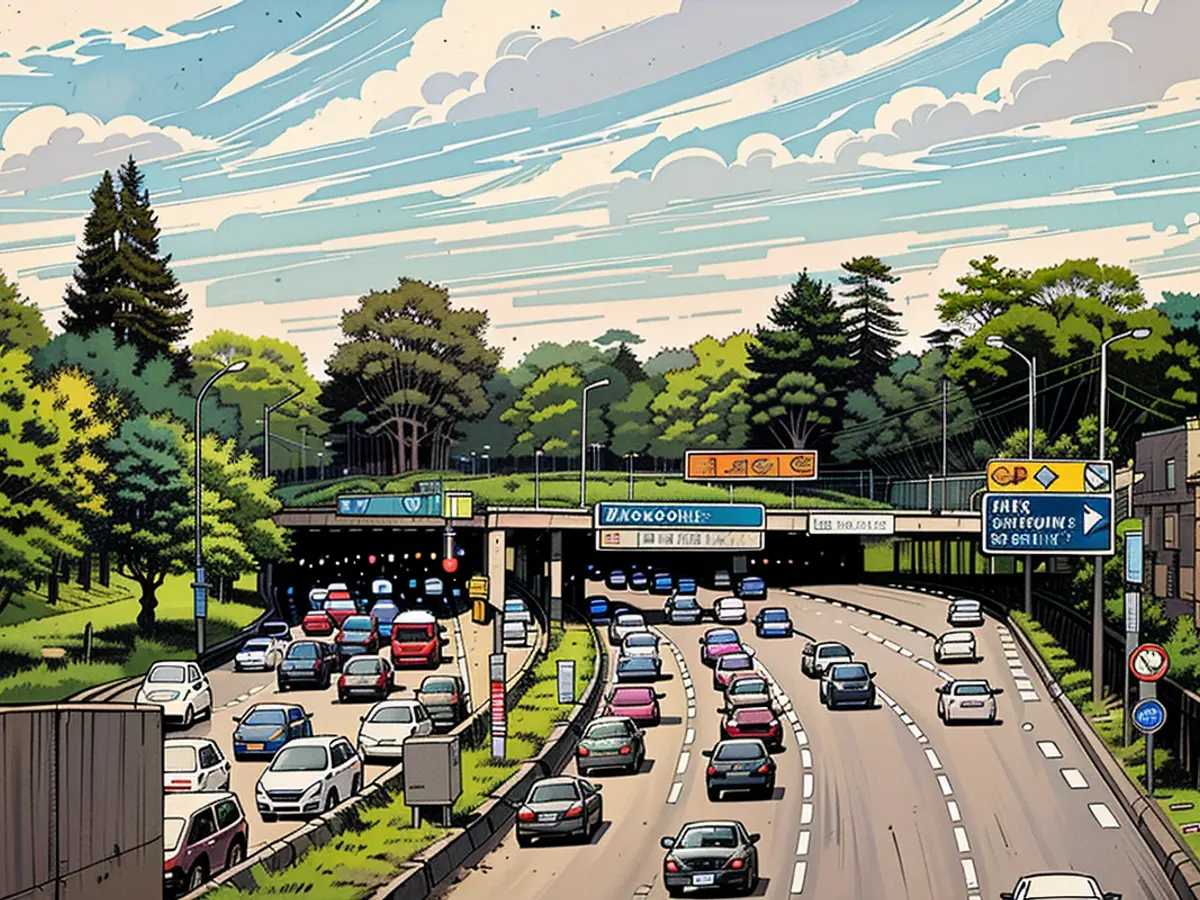Visitors to Paris in SUVs will need to prepare for significant financial expenditure.
Paris city administration is persisting with the traffic overhaul, disregarding opposition. Two fresh regulations are implemented now. The city's transport chief itself had raised objections against one of these measures.
Starting from early October, tourists visiting Paris will encounter a notable surge in parking charges for hefty cars. An hour of parking in the city core now sets you back 18 euros for hefty SUVs and other sizable vehicles, making six hours cost you 225 euros. Parking charges outside the core are moderately cheaper. Parisians, artisans, or handicapped individuals are exempted from this rule.
In a survey of citizens, where barely six percent of eligible voters took part, 54.5 percent voted in favor of heightened parking fees. The tariff applies to combustion and hybrid automobiles weighing 1.6 tons or more, and electric cars weighting two tons or more. Private parking lots are excluded from this regulation. The city asserts that heavy vehicles aggravate environmental pollution, gobble up extensive public space, and pose a threat to road safety.
The new regulation is straightforward to enforce. Paris's parking has been under constant surveillance with video vans for a while now, which capture the license plates of parked cars. Parkers are required to input their license plate at the parking meter. The city can access vehicle and owner data via automatic license plate recognition, enabling them to determine the weight category of the parked vehicles.
Opposition from the Transport Minister
With the citizen survey, Mayor Anne Hidalgo gained backing for another phase in the traffic overhaul, which she is pushing forth with the red-green city administration against resistance. In the past, she had numerous riverside streets alongside the Seine blocked from car traffic and made accessible to pedestrians. Paris's cycling network is expanding, as are the number of car lanes and parking spaces decreasing. New green spaces are emerging, and almost everywhere in the city, the speed limit has been capped at 30 km/h. Around a year ago, the E-scooter rental service in Paris also ceased operation, following a citizen survey where a majority opposed the scooters.
And from early October, despite objections even from the transport minister, the mayor is implementing another controversial move that has raised eyebrows among car drivers. On the city's beltway, the "Périphérique", the permitted maximum speed will be lowered from 70 to 50 km/h. This aims to reduce noise for the numerous residents along the highway. However, the average speed on the beltway during peak hours already falls below 50 km/h.
Following the traffic overhaul in Paris, other vehicles, such as large SUVs and other sizable vehicles, are now subject to increased parking charges. Despite the transport minister's objections, the mayor is also implementing a reduction in the permitted maximum speed on the "Périphérique" beltway to 50 km/h, affecting other vehicles using this route.






